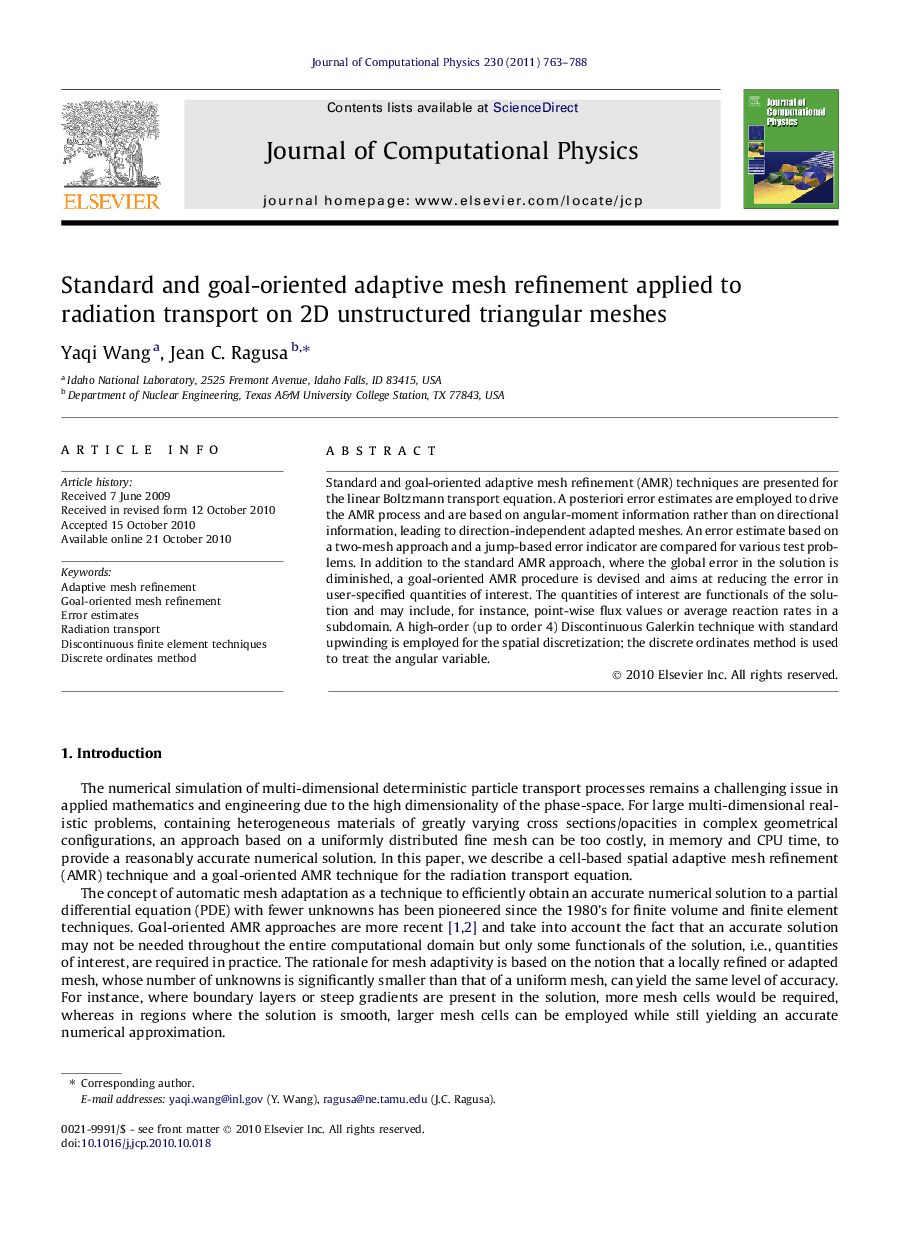| Article ID | Journal | Published Year | Pages | File Type |
|---|---|---|---|---|
| 519097 | Journal of Computational Physics | 2011 | 26 Pages |
Standard and goal-oriented adaptive mesh refinement (AMR) techniques are presented for the linear Boltzmann transport equation. A posteriori error estimates are employed to drive the AMR process and are based on angular-moment information rather than on directional information, leading to direction-independent adapted meshes. An error estimate based on a two-mesh approach and a jump-based error indicator are compared for various test problems. In addition to the standard AMR approach, where the global error in the solution is diminished, a goal-oriented AMR procedure is devised and aims at reducing the error in user-specified quantities of interest. The quantities of interest are functionals of the solution and may include, for instance, point-wise flux values or average reaction rates in a subdomain. A high-order (up to order 4) Discontinuous Galerkin technique with standard upwinding is employed for the spatial discretization; the discrete ordinates method is used to treat the angular variable.
